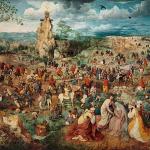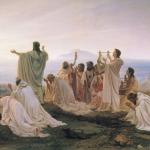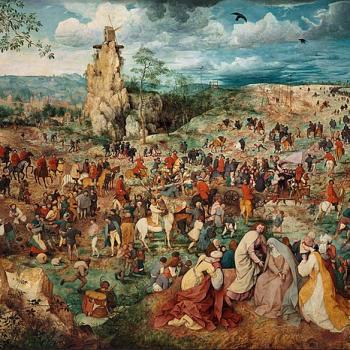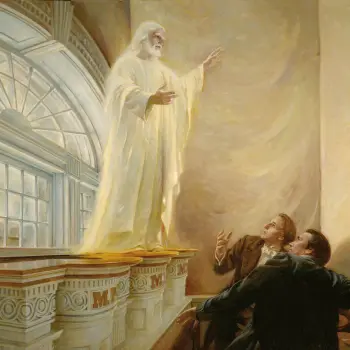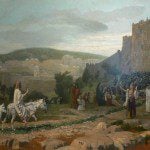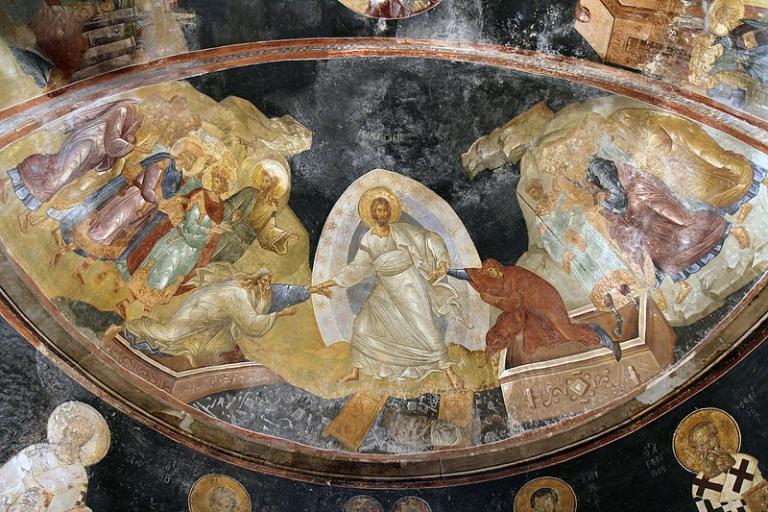
I intended to do more than I have, both here on this blog and personally, with Holy Week or Passion Week — the term passion refers not to emotions in our modern sense, but to Christ’s suffering — which began last weekend on Palm Sunday. I’ll try to make up for it, at least a little bit, today and tomorrow. This has been a very hectic week. Precisely as I wasn’t hoping it to be.
On Thursday, I said nothing about “Holy Thursday” or “Maundy Thursday.” The derivation of the word maundy in the term is disputed, but it may derive from the Latin word mandatum, or commandment, reflecting Jesus’ words spoken to his disciples at the Last Supper:
A new commandment I give unto you, That ye love one another; as I have loved you, that ye also love one another.
By this shall all men know that ye are my disciples, if ye have love one to another. (John 13:34)
For hundreds of millions of Christians worldwide, Maundy Thursday or Holy Thursday recalls the Last Supper of Jesus and his apostles, and his washing of their feet.
After that Passover meal, Jesus and his followers walked to the Garden of Gethsemane, where he apparently often went to pray. He withdrew himself, and, as Latter-day Saints understand, commenced there the awesome and mysterious process of his atonement for the sins of humanity.
However, a communal celebration of goodness and hope was marred, as so many human things are, by wickedness (Judas’ treachery), and it was followed by stunning violence and injustice. Such, too often, is the world in which we live.
Yesterday was Good Friday. (The word good here should be understood in one of its old, archaic meanings: “holy” or “pious.”) It marks the crucifixion of Jesus Christ and his death on Calvary.
The messianic dreams of Jesus’ disciples had, it seemed, been destroyed. The man in whom they had trusted was dead. They were scattered as sheep without a shepherd.
What they do not seem to have fully understood — who can? — is that their leader’s violent, humiliating death, his apparent defeat, represented part of the greatest victory in this world’s history. His cry “It is finished” marked the culmination of the Atonement, his triumph over sin. It opened the door for all of us, if we will, to return into God’s presence.
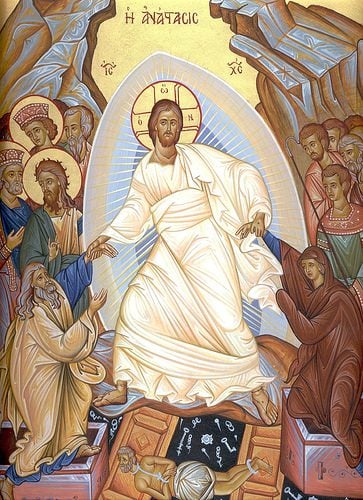
Holy Saturday, the last day of Holy Week and the day before Easter, follows Good Friday. As I write, today is Holy Saturday. It commemorates the day that Jesus’ broken body lay dead in the tomb. It represents an interim period, a time of waiting and uncertainty.
Modern believers in the Restoration, however, understand that, even while his body lay dead and motionless, Jesus, an immortal spirit, was preaching to the spirits in prison, inaugurating the great work of the redemption of the dead that is carried on now in our temples. (See Doctrine and Covenants 138.). We may not always see God visibly at work from our mortal vantage point in this fallen world, encircled by the veil, but he is always working for our salvation.
On that ancient Saturday, though, the apostles were hiding, their hopes dashed, not knowing what to do, perhaps anticipating their own arrest and execution.
Many of us are living our own Saturday, whether holy or unholy. Evil and injustice frequently seem to have the upper hand in the world around us, and indeed in our own lives. We’re fearful and uncertain. Often, we’ve been defeated, and perhaps we feel that any significant victory is beyond our reach. We’re worn out. We’ve heard promises of wonderful things to come, but we’re unsure of them. Sometimes our days seem very dark. Have we believed in vain?
But the testimony of the four New Testament gospels, of the first apostles, of the early Christians, of Christian believers throughout the centuries, and of the Prophet Joseph Smith and his apostolic successors is that, early on Sunday morning, the stone had been rolled away and the tomb was empty. Jesus had risen.
And, for all of us, Easter will come. Our Saturday of uncertainty and defeat does not, will not, continue forever. As the great English mystic Julian of Norwich (deceased circa 1416) so simply but memorably expressed the Christian hope, in words that she said had been given to her by God, “All shall be well, and all shall be well, and all manner of things shall be well.”
Good Friday, Holy Saturday and Easter Sunday commemorate the passion, death and resurrection of Jesus and constitute what is sometimes called, in mainstream Christianity, the Holy Triduum (“three days”).
Whenever we partake of the sacrament, the events of these days should be central to our reflections. They should absolutely be at the center of our thoughts throughout today and tomorrow.
“The fundamental principles of our religion,” Joseph Smith declared, “are the testimony of the Apostles and Prophets, concerning Jesus Christ, that He died, was buried, and rose again the third day, and ascended into heaven; and all other things which pertain to our religion are only appendages to it” (Teachings of the Prophet Joseph Smith, 121).
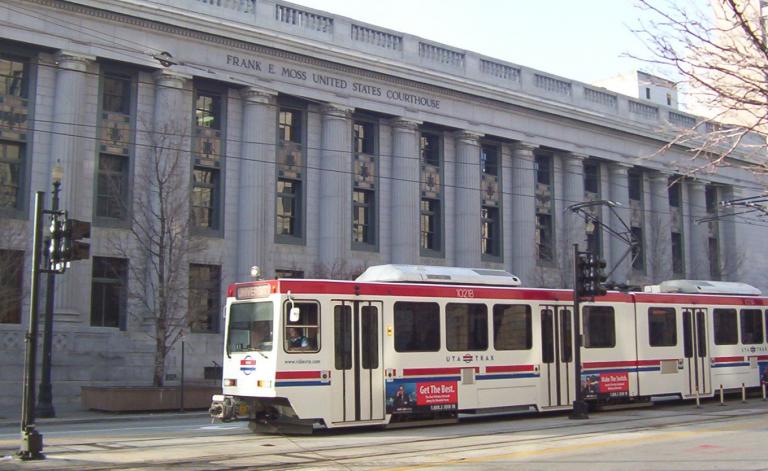
On a much more mundane but still joyous note of liberation, I was delighted by this news item: “BYU Ph.D. student’s international student visa reinstated.” And I was very proud to see my friend Richard Lambert centrally involved in this story: “Millcreek neighbors rally as immigrant families face sudden deportation threat: ‘I have never in my life, ever seen such a situation like this, where due process is completely ignored and intentionally ignored,’ attorney Jim McConkie said”
Back when he was a federal United States attorney, Brother Lambert involved me as an expert witness for the prosecution in the case against Brian David Mitchell, the notorious kidnapper of Elizabeth Smart. We’ve been friends ever since, and he appears in the Interpreter Foundation film documentary film Undaunted: Witnesses of the Book of Mormon (which, by the way, is available for free streaming).

I also enjoyed this piece from the Wall Street Journal. You may or may not be able to access it, but it is quite interesting: “Easter Merits More Handel’s ‘Messiah’: A Christmas favorite, the oratorio has more to contribute to Holy Week celebrations.”
I couldn’t agree more. Messiah was actually written more for Easter than for Christmas. The author, Nicole Ault, offers a number of interesting insights, but I was particularly pleased to see this:
“Somewhere in the unbroken decades of performances since, it became a yuletide industry while showing up much less at Easter time. London, where Handel lived and is buried, has some performances for the holiday. But searching the internet for a Holy Week performance in New York, Chicago or Washington, I found only one: A sing-along at the Latter-day Saints’ D.C. Temple. This is a pity, because “Messiah” captures the pathos of the battle with sin and death that represents Easter more than any springtime flower or garden rabbit.”
Have a happy Easter!


